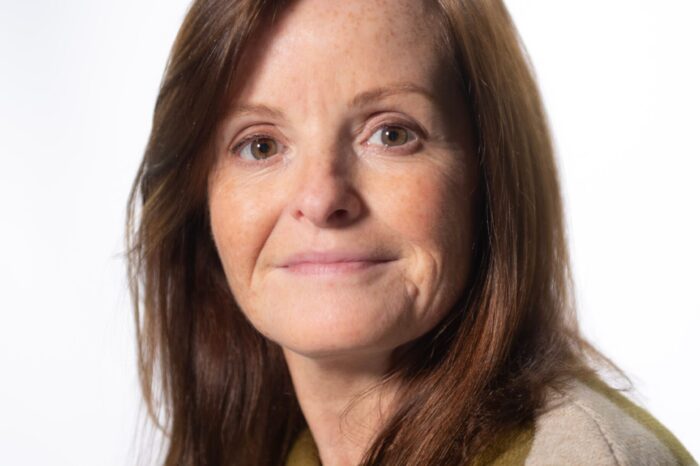ENTERPRISE AGENCIES JOIN FORCES TO HELP BUSINESSES BECOME ENVIRONMENTALLY COMPETITIVE

Scottish Enterprise (SE) and Highlands and Islands Enterprise (HIE) have teamed up to help around 50 Scottish companies calculate the carbon savings of their innovative new products and services, so that they can meet the growing requirement to accurately forecast their environmental impact.
The two-month pilot was aimed at raising the competitiveness of the participating companies in a marketplace where the ability to present accurate data about your environmental impact is increasingly becoming a deciding factor in a company’s overall attractiveness to investors and customers.
After a tendering exercise, Impact Forecast was chosen to provide its digital forecasting tool as well as coaching each company on life cycle assessment and producing carbon savings estimates which were then independently validated. The project gave participating companies free access to these services, which would typically require a costly exercise. The programme closed with a workshop on how companies can pitch their low carbon credentials to potential investors and customers.
Feedback from companies highlighted that the programme had improved their knowledge of carbon estimation with participants advising that it will impact their work and competitiveness in future from product development to encouraging investment opportunities.
Cabinet Secretary for Finance & Economy Kate Forbes (pictured above) said: “The forecast impact tool will help companies across Scotland to monitor the effects they are having on the environment and in turn will be able to reduce their carbon footprint.
The Scottish Government is fully committed to helping Scotland meet our ambitious goals to be a net zero country by 2045.”
Interim managing director of business growth at Scottish Enterprise Rhona Allison said: “It is vital that businesses can effectively measure their green credentials.
We know that those companies who can provide credible low carbon figures will gain a competitive edge with customers, investors, funders and suppliers. Scottish Enterprise is supporting businesses to be more sustainable as well as cultivate economic climate opportunities as part of our net zero framework that will help drive a greener economy in Scotland. It is great to see this project with Impact Forecast deliver a business tool that works for the environment and the economy.”
Director of service delivery at Highlands and Islands Enterprise Rachel Hunter said: “There has never been more attention on the need to address the impacts of climate change. As part of this we can expect customers to become increasingly discerning and want their suppliers to be taking measures to reduce their carbon footprint and contribute to the country’s net zero targets.
This pilot project has enabled companies to demonstrate to their customers, stakeholders and investors that they are doing just that. It supports them through their net zero journey and helps them achieve their climate goals.”
Nick Burnett of MacRebur Limited in Lockerbie that turns plastic waste into products that are used in the manufacture of asphalt roads, said: “The tool allows us to quickly assess the carbon impacts of new projects in territories across the globe. We can use the tool to identify changes that create a lower carbon future for our company.”
Kelly Morris of data and technology company Clearview Intelligence in Glasgow, said: “Using the Impact Forecast tool, we were able to analyse the carbon impact of relocating the manufacture of our Solarlite Active Road Stud from Malaysia to the UK. Our Carbon Impact Report was confirmed as not only valid and positive but significant, saving 49 tonnes of CO2 equivalent per annum, equal to driving a car six times around the world.
This opportunity has proven to be a real catalyst for change and we will use the impact tool in future to modify our design and manufacturing methods even further to reduces more carbon.”
Renewable Parts Ltd in Lochgilphead took part in the pilot too and Michael Forbes, general manager of the company, said: “This training and the impact forecasting tool has been of real benefit to the business. We were already monitoring and reporting on the carbon savings our customers make by buying recirculated goods as opposed to new, but the tool is a much more effective way of capturing the data and effectively displaying it back to the customer.”
He added: “We are currently rolling this process out across all of our refurbished products so we can report back individually on a saving per product type, or collectively for a customer per year or per quarter. The training was interactive and engaging and outputs of the tool are already being put to use!”
Alongside the 49 participating companies (9 supported by HIE and 40 by SE), 50 representatives of Scotland’s economic development agencies and partner organisations also took part to increase their awareness of carbon lifecycle analysis. This included staff from SE and HIE, South of Scotland Enterprise (SoSE), Zero Waste Scotland, Edinburgh Climate Change Institute (ECCI), Censis, The Data Lab, Industrial Biotechnology Innovation Centre (IBioIC) and Net Zero Technology Centre (NZTC). The 40 SE-supported companies were funded via the European Regional Development Fund (ERDF).








